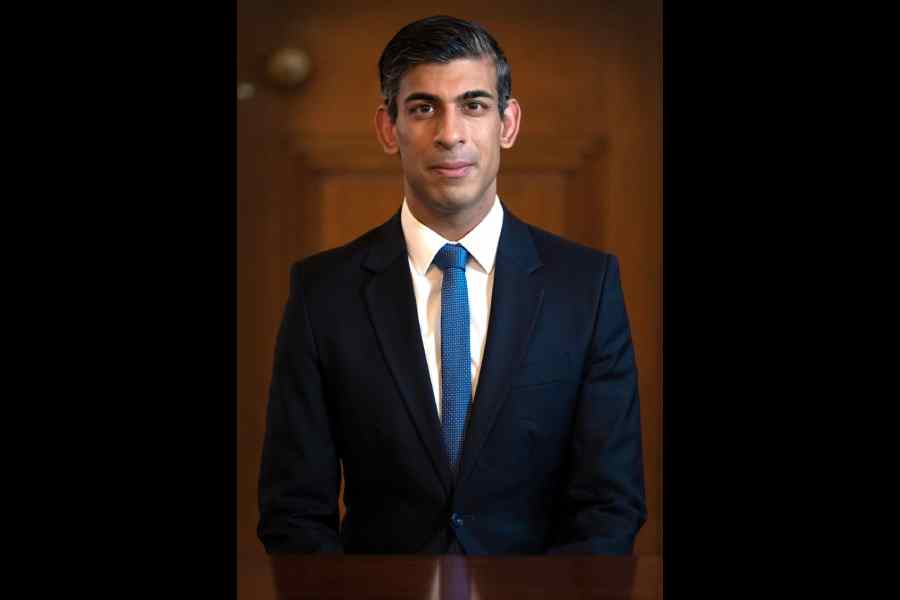Words of praise
Although Rishi Sunak led the Conservatives to their worst defeat in the party’s history, he emerged as the best of the five prime ministers that Graham Brady had to deal with as chairman of the 1922 Committee in the House of Commons. Back-bench Tory members of Parliament can send confidential letters to the chairman of the 1922 Committee expressing dissatisfaction with the PM. The chairman can urge a PM to step down or hold a no-confidence vote if the number of letters reaches 15% of the Conservative parliamentary party.
Brady has just published his memoir, Kingmaker: Secrets, Lies, and the Truth about Five Prime Ministers, in which he is less than complimentary about David Cameron, Theresa May, the foul-mouthed Boris Johnson and Liz Truss, who wrecked the British economy. But about Sunak, he says: “I would observe that not only is Rishi Sunak decent and competent, he also has rather less ego than is normal for a senior politician.”
He goes on: “Attacks on Sunak for his wealth — suggesting it made him ‘out of touch’ — couldn’t have been more wrong. Those who have dealt with Rishi find him surprisingly normal. But maybe Rishi Sunak wasn’t enough of a politician: he made the mistake of being what people say they want, not what they actually vote for.” He writes about the plots against Sunak by fellow Tories. Media reports claimed Brady had received “around 50” letters — almost at the threshold of 53 required for a no-confidence vote. “In April 2024, the MP Simon Clarke briefed the press that ‘around 50’ letters of no-confidence in Rishi Sunak had been submitted. In fact, I had received nine.”
Good books
Getting shortlisted for the Financial Times Business Book of the Year is quite an achievement but Raj Shah, a technology entrepreneur and venture capitalist in the United States of America, has managed it with Unit X: How the Pentagon and Silicon Valley Are Transforming the Future of War. The book, which he has co-authored with Christopher Kirchhoff, an expert in emerging technology, is one of six shortlisted for the £30,000 prize. It takes the reader inside the scientific revolution “that is shaking up the way the US military is supplied and how modern warfare is waged.”
The six books shortlisted for the £50,000 Wolfson History Prize this year include Shadows at Noon: The South Asian Twentieth Century by Joya Chatterji, and Courting India: England, Mughal India and the Origins of Empire by Nandini Das. Joya teaches at Cambridge, Nandini at Oxford. In the meantime, Neil Basu (picture), the former head of counter-terrorism at Scotland Yard, and I have arranged to meet to discuss his forthcoming book, Turmoil: 30 Years of Policing, Politics and Prejudice. His late father, Pankaj Kumar Basu, was a doctor who came to Britain from Calcutta.
Changed picture
A leading contender to replace Rishi Sunak as the leader of the Conservative party is Robert Jenrick, who has complained about England becoming less English because of the “influx” of non-white immigrants, both legal and illegal. But I can report signs of social change even at Eton College, the elite private school which has produced 19 prime ministers.The 2024 entrance scholarships are just out. Among the 14 boys who have won a King’s Scholarship — they form the school’s academic elite — is one R Bajpai. And in another category, among the 12 boys who have won an Orwell Award (named after George Orwell) are Z Hussain, AH Iqbal, DB Patel and MI Tahir.
Global reach
On Tuesday morning, I attended a press conference at which Rufus Norris announced his final programme after 10 years as artistic director of the National Theatre. In the evening I attended the press night of Shakespeare’s Coriolanus, which was new to me since I hadn’t studied the tragedy either at St. Xavier’s in Patna or at school in England.
One of the digital innovations that has come out of the Covid-19 pandemic is that National Theatre productions can be watched “in 184 out of 195 countries in the world”. I would urge theatre lovers in India to keep an eye out for Nye, a brilliant play on the founding of the National Health Service, which “will be streamed for audiences around the globe for free” later in the autumn. “I am beyond thrilled that the National Theatre now has a global audience reach,” said Norris. “There is simply nowhere else like it on earth.” He also spoke of theatre reflecting Britain’s evolving culture. “If students are only studying books which were written 200 years ago, that isn’t a reflection of Great Britain’s fantastic culture now.”











